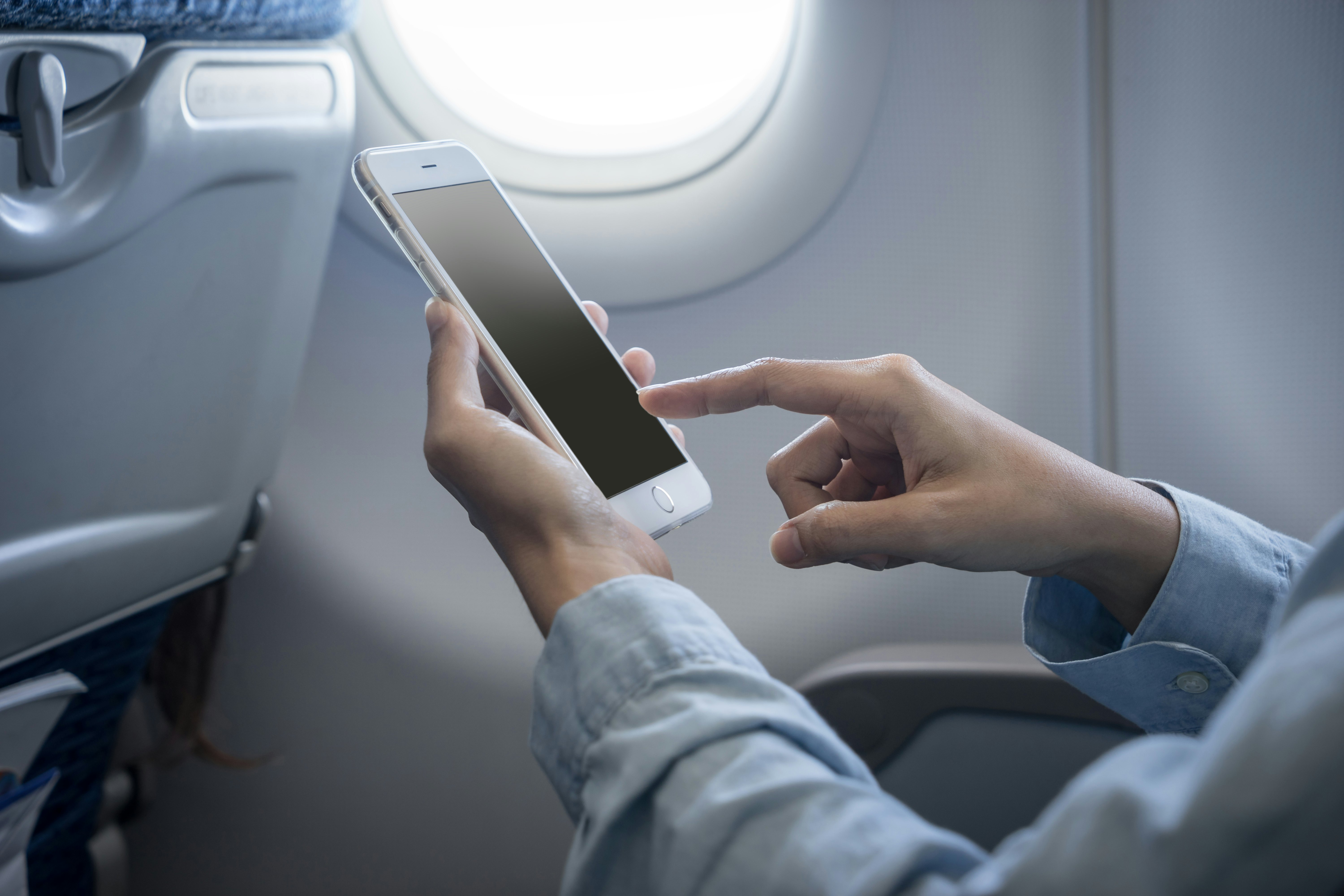Check the seat pocket in front of you: can in-flight magazines survive COVID-19?
May 25, 2020 • 4 min read

In-flight magazines are touched by multiple travellers during their shelf life. © Getty Images
“We are still publishing,” says Kirsten Galliott, editor-in-chief of Qantas airline’s in-flight magazine, “in fact we think we may be the only in-flight magazine in the world to publish right through the coronavirus.” And while the airline’s glossy magazine is indeed still going to print, its new method of distribution perhaps indicates one future for publications that survive the pandemic. “We are obviously not on board planes,” she says. “Instead we are sending 40,000 copies to Qantas’s most valuable frequent flyers. The magazine is being sent directly to their homes.”

With far more planes on the ground than in the air and the immediate future for domestic air travel uncertain in an industry still trying to manage the COVID-19 fall out of international travel bans and global border closures, the future of in-flight magazines has come into focus. Their demise has been predicted many times over in recent decades but they have persisted and even grown in their own, very particular niche.
While many global newsstand magazines have folded, in-flight magazines have survived, for reasons firmly rooted in their unique appeal for advertisers, particularly ones selling luxury goods, from fragrances to cars: their audience, likely to have high levels of disposable income, is literally captive, strapped in a seat with nothing to do for potentially hours, and furthermore, that audience is massive. And while there has never been a guarantee that a passenger will pick up a magazine, research consistently shows a high take-up. A Harris poll found that 89% of leisure travellers are likely to at least thumb through the magazine in front of them if only to kill time. With editorial noted for its distinctly upbeat, positive content and tone, in-flight magazines have been a niche publishing sector punching well above its weight in a struggling publishing industry.

But that was before COVID-19. Delta airlines has now pulled its in-flight magazine Sky in a move echoed across the industry. A company spokesman says it has “streamlined its on-board cleaning process by removing non-essential items from seat-back pockets, including Sky magazine, until further notice”. Aer Lingus in another airline that has done the same with its Cara magazine – and for the same reasons.
Cabin cleaning
Seat pockets – the home of in-flight magazines - have long been shown to harbour bugs; the industry’s budget-driven, ever tighter turnaround times has had the effect of reducing cabin cleaning to the bare minimum. That will change as airlines significantly step up their cleaning and disinfectant programmes as flights resume, but suspicions ‑ even fear ‑ of any on-board surface will remain for some time.

Magazines present a particular problem in that they are touched by multiple travellers. COVID-19 research has noted the very low risk of viral transmission from paper but questions remain whether such reassurance is likely convince post-lockdown travellers to pick up a slightly dog-eared magazine whose glossy pages have been well-thumbed by any number of other people.
Michael Keating, CEO and founder of Ink Global, is optimistic about the future of in-flight magazines, taking the view that the COVID-19 effect on the industry will prove temporary. The travel media company creates in-flight magazines for more than 20 airlines including American, United, easyJet, Virgin Atlantic, Eurowings, Norwegian, Etihad, and Qatar.

“The main reason we’ve skipped several magazine editions, is that airline fleets have been grounded,” he says, adding “we’re currently planning several comeback issues. American Way for AA, the world’s largest airline, has been produced throughout.”
Hard copy in-flight magazines have for some time been offered, almost as an incidental by-product by their airline, in digital formats – and the coronavirus pandemic is likely to see companies considerably beef up their digital offerings, not least because it’s a format that can be consumed by passengers from the germ-free safety of their own devices.
Digital downloading
The challenge for airlines, who use print magazines to sell products from perfume to whiskey, advertise partnerships with car hire firms and even tell what movies are being shown, will be to persuade travellers to actually download them. Qantas has been quick to react in improving its digital offering: “we have also created an enhanced digital edition of the magazine,” says Galliott. While firmly acknowledging the importance of digital – Ink Global also produces digital content for airlines - Keating sees a broader mix: “none of the airlines we work with have turned their back on print. The more interesting and exciting opportunity is how all the customer communication touchpoints work together i.e., email/.com /in-app, print, on-board, etc. Right now, airlines need to communicate with their customers more than ever.”

Cabin cleaning and travellers’ hypersensitivities aside, other factors may come into play when decisions are being made about the future of in-flight magazines. With environmental concerns increasingly to the fore, coupled with the need to reduce operating budgets in a struggling post-COVID industry, airlines may come to consider the cost of carrying all those glossy magazines in a different way. Research by Boeing found that a fleet of wide-body aircraft operating 1000 flights a day, could make annual fuel savings of $4.5 million if it could eliminate the weight caused by print magazines and newspapers.




